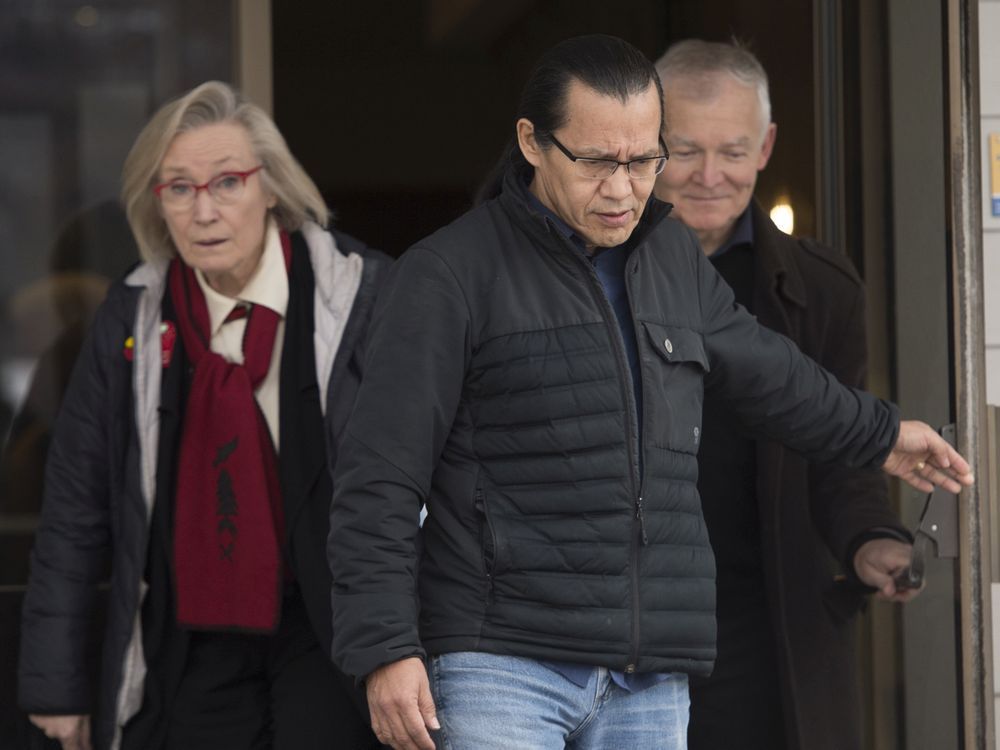Premier maintains Wet'suwet'en deal marks no change for Coastal GasLink

Credit to Author: Derrick Penner| Date: Tue, 03 Mar 2020 02:01:33 +0000
Premier John Horgan remained adamant on Monday that the agreement between the province, federal government and Wet’suwet’en First Nation over Aboriginal rights and title won’t affect the $6.6-billion Coastal GasLink project.
The two levels of government and the Wet’suwet’en reached a draft arrangement over the weekend on “an expedited process to implement Wet’suwet’en rights and title,” according to a joint statement, although the dispute over the project that sparked the discussions wasn’t part of the deal.
“With respect to the Coastal GasLink Pipeline, the LNG Canada completion plant in Kitimat — all of those issues are fully permitted and fully underway,” Horgan said during question period in the legislature.
Horgan added that the construction project “employing thousands of British Columbians, Indigenous and non-Indigenous, and it’s going to be a net benefit for all of B.C. when it’s completed.”
However, what the draft agreement achieved gets at aspects of the Delgamuukw-Gisday’wa Supreme Court of Canada decision that have remained unresolved since 1997, Horgan said, which formed part of the underlying dispute over the Coastal GasLink project.
“All parties found a pause opportunity so that the discussions could take place,” Horgan said in the legislature, and arrived at another element in the “path forward” with respect to recognizing Aboriginal rights and title.
Outside the legislature, Indigenous Relations and Reconciliation Minister Scott Fraser said that the pipeline is “an issue that we agree to disagree on, at this point.”
“The press forward is to deal with the rights and title of the Wet’suwet’en people, a unity of the Wet’suwet’en people in (their) governance structure, and all of these things are outstanding and have been for 23 years,” Fraser said.
Details of the draft arrangement were not released and will stay with the Wet’suwet’en as they seek to ratify the deal through their traditional feast process, which is expected to take up to two weeks.
As it is ratified, one Wet’suwet’en leader wants to make sure that the arrangement, which was negotiated between Fraser, federal Crown-Indigenous Relations Minister Carolyn Bennett and the First Nation’s hereditary chiefs, includes the voice of their elected leadership.
Wet’suwet’en communities remain divided over the project, with one side welcoming the jobs and training opportunities the Coastal GaslLinks project is bringing as economic reconciliation while the other side objects over environmental concerns.
“I think that the hereditary must acknowledge the elected system,” said Karen Ogen-Toews, CEO of the First Nations LNG Alliance and an elected councillor with the Wet’suwet’en First Nation, one of the five of six Wet’suwet’en band councils that signed impact benefit agreements in support of the Coastal GasLinks project.
Ogen-Toews said other B.C. First Nations have created governance structures that include both hereditary leadership and elected councils, which she hopes will be developed with the Wet’suwet’en.
“Yes, the elected councils are under a colonial construct that has been imposed upon us,” Ogen-Toews said. “But today, that’s the only system we have,” which has been delivering housing, education and other services for Wet’suwet’en people.
“Are (hereditary leaders) prepared to take over the water, sewer, roads, social issues, education,” Ogen-Toews said. “It’s not an easy job, and we get elected to do this, to speak on behalf of our people — not just the land, the people.”
— with file from Canadian Press